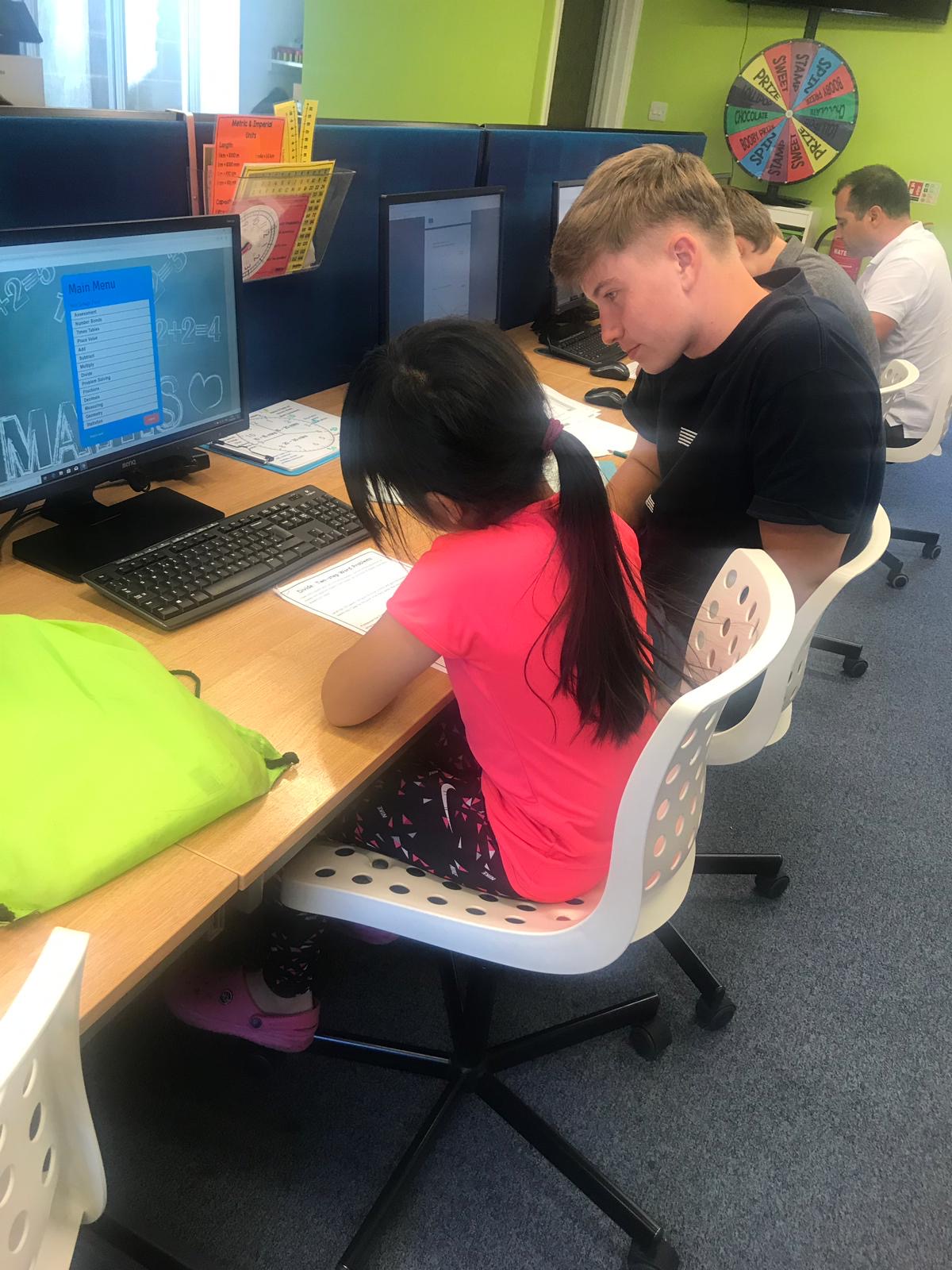Helping children with their spellings

The English language can be challenging to grasp, especially for children learning how to spell. Helping children with their spellings doesn’t have to be difficult though!
Try these tips for making spelling that little bit easier for you child.
Learning letter patters
- I before E except after C. The letter i usually comes before e in a word, however there are a few exceptions to this rule, like seize, weird, science…
- It can be useful to teach children common word endings (called suffixes). Teaching the common word endings, like “-een” “-ough” “-tion” “-ue” “-cian” will help children to remember the spellings more easily.
- Some words don’t follow any rules or patterns so they have to be memorised, for example the b in ‘subtle’ is silent.
- Some double letters can’t be heard, like ‘accommodation’ and ‘disappoint,’ so learning the spellings for these is useful.
- Homonyms are words that sound the same but have different meanings, like ‘your’ and ‘you’re.’ These must be learnt as two separate meanings, to avoid confusion. The apostrophe in ‘you’re’ stands in place for ‘are,’ so this is a different meaning to the direct address using ‘your.’
Top tips:
- Reading: reading allows spelling to be learnt easily without realising, as well as improving vocabulary.
- Mnemonics: mnemonics involves using imagery or patterns, which ca help to remember spellings. Try learning acronyms, like ‘because’ can be remembered as as ‘Big Elephants Can’t Always Understand Small Elephants’, or the word ‘necessary’ has one c and two s’, which can be remembered by comparing it to a shirt, which has one collar, one c, and two sleeves, two s’.
- Spelling lists: create a new spelling list every week and test your child on it. You can make this fun by creating themed spelling lists, for example one on seaside-related spellings. Writing out the spellings over and over again, especially the incorrect ones, will help with memorising and perfecting them. It may be beneficial to keep a list or notebook to record all the spellings that have been learnt, then you and your child can return to the list to recap.
- Sounding out words: sounding out difficult words can help to break them down when spelling them, like February can be broken down into Feb-ru-ary, or Wednesday can be Wed-nes-day.
Helping children with their spellings has never been easier. Learning spelling patters and rhymes allows certain spellings to be remembered with ease. For some tricky spellings, there is no pattern, like words with silent letters – so these ones have to be memorised. Testing your child on their spellings by giving them weekly spelling tests will help them to remember spellings and letter patterns. For those tricker spellings, make a note of them and go through them together until they are perfected!
Click here for a list of challenging spellings to test your child on.
3 ways to engage children with learning

Keeping children’s focus and maintaining their full attention can be challenging when it comes to learning. This is because not all children will be motivated in every subject they do. This is why trying a range of techniques can be useful for maintaining interest with the topic being taught.
Here are 3 ways you can engage children with their learning:
Monitoring your child’s progress
Going through work with your child that they are currently working can help keep on track with their progress. Perhaps try talking to them about their day at school. Ask questions like:
- What did you learn?
- What did you think about the topic?
- Did you find it challenging or easy?
Anything they struggle with you can recap together. This will help your child to understand the subject as well as reflect upon their learning.
As well as reflecting on the challenging material, ask them what their favourite subject(s) are. You can encourage and motivate them in what inspires them, too!
Rewarding efforts with positive encouragement
Children are constantly learning and like to be rewarded when they’ve been working hard. Helping them recognise that they are progressing with learning and doing well will encourage them in education.
Rewarding can be given in many forms, either something tangible like a treat or in verbal praise, maybe an activity or day out.
These rewards can also vary depending on what has been achieved, for example verbal praise can be given when they have aced a spelling test. Something larger, like a fun day out can be for achieving top marks in an exam or a positive report card.
Different learning approaches
Discover whether your child learns best through auditory, kinaesthetic or visual learning. Auditory learning concerns learning through hearing, whether it’s listening to music which aids the learning process or repeating study notes aloud. Kinaesthetic learning is learning by doing, this could be acting out something or creating something, like colour coded notes. Visual learning when the learner helps by seeing what is being taught. This type of learner can write out notes, create a poster or draw.
Knowing how your child learns best is a step towards engaging them with learning. Everyone has a unique way of learning so identifying how your child learns most effectively will make learning fun and achievable. Keeping on track with their learning by knowing what they are being educated in and asking them how they feel about the material. This will help to identify which areas they need help in and offer positive encouragement to reward when they are doing well.
If you’re looking for other strategies to help with your child’s learning, like how to mitigate your child, read more on our blog here!
If you’re interested in the 3 ways to engage children with learning, read more about learning engagement theories here.
6 ways to help motivate your child

Motivating your child with learning and education doesn’t have to be a challenge. There are many ways parents can help their children stay on track with school work and learning, through monitoring progress, positive encouragement and being supportive.
Here are 6 to help motivate your child throughout their learning:
-
Organisation
- Pack a schoolbag the evening before.
- Complete homework the day it is set.
- Keep a diary or calendar of important dates.
- Create a study timetable.
- Create a list of tasks to be completed.
-
Punctuality
- Establish a routine. Try setting a time for completing homework, a time for dinner and a strict bedtime schedule.
- Plan ahead.
- Focus on a goal or objective to complete e.g. achieving predicted grades.
-
Reading
- Reading for pleasure expands vocabulary,
- Ir enhances creativity.
- It improves spoken and written English.
-
Study skills
- Complete past papers.
- Learn how to process and organise information.
- Prioritise tasks in order of importance.
-
Knowing important dates
- Make a list of important dates.
- Write dates somewhere visible to be reminded of them.
- Work towards the important dates allowing time to be managed effectively.
-
Private tuition
- Specialised tutors can assist in areas children need help in.
- Work towards goals together, whether it’s GCSEs, SATs or the 11+.
- Lessons tailored to the individual helping to stay on track and be motivated to learn.
Trying different approaches to motivate your child with learning is good for keeping on track with academic progress. For ideas on how to make learning fun for children, look at our blog here.
Read more about science-based approaches on motivating children here.
